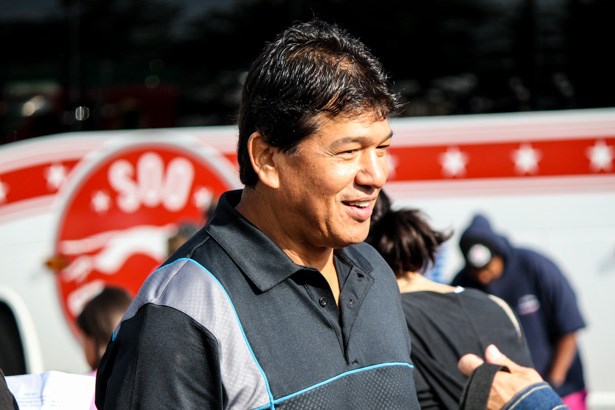
Students in a sports marketing class at Toronto Metropolitan University (TMU) will conduct a study this semester to determine the feasibility of establishing an Indigenous-owned professional hockey squad.
The study will also help determine if it is plausible to have an all-Indigenous women’s club compete at international events.
Ted Nolan, a former National Hockey League (NHL) player and coach, believes the answer, at least whether a women’s Indigenous team can be formed, is a resounding yes.
Nolan coached the Wiikwemkoong T-Birds women’s squad at the 2022 Fred Sasakamoose Chief Thunderstick National Hockey Championship.
“I was really blown away with the skill level there,” Nolan said of the tournament, which was held last May in Saskatoon. “There were five Olympians there.”
Nolan said taking some of those Olympians and then throwing into the mix Indigenous players now toiling at various American universities in the NCAA ranks would form a formidable team.
“I think we have enough women’s players that could compete (internationally),” he said. “Canada would probably beat us. And the U.S. would probably beat us.”
However, Nolan believes an Indigenous women’s side would be more than able to hold its own and even win some matches against some other countries that traditionally participate in international events.
Nolan, a member of Garden River First Nation in northern Ontario, played eight seasons of pro hockey. He appeared in a total of 78 NHL contests, 60 with the Detroit Red Wings and 18 with the Pittsburgh Penguins. Nolan also coached with three NHL franchises. He had stints with the Hartford Whalers, Buffalo Sabres and New York Islanders. He won the Jack Adams Award for being the NHL’s Coach of the Year for his efforts with the Sabres during the 1996-97 season.
“For every player like myself who made it through, there’s another 1,000 players that were a lot better,” he said. “But they had a lot of obstacles and barriers.”
Nolan is now currently the president of 3Nolans with his sons Brandon and Jordan, a pair of players who also made it to the NHL. The Nolans offer skills development camps for First Nation youth across the country.
Ted Nolan believes young female players would certainly benefit from an elite all-Indigenous women’s squad they could aspire to play for.
“There is so much talent out there,” Nolan added.
Over the years Nolan said he has heard numerous times how wonderful it would be to have an elite Indigenous hockey squad compete internationally. But nothing has ever been done about that.
The study being conducted by TMU students is titled The Spirit Project. News of the project first surfaced last month at The Carnegie Initiative Summit in Toronto.
The Carnegie Initiative is named in honour of hockey trailblazer Herb Carnegie. The summit attracted 400 delegates. It was held to showcase efforts made to make the sport more inclusive and welcoming for all.
Bryant McBride, a co-founder of the Carnegie Initiative, said there is only one deadline he is willing to commit to at this point.
“By the end of this semester we will have a report that is thorough and thoughtful and it underscores what the possibilities are,” said McBride, a native of Sault Ste. Marie, Ont., who now lives in Massachusetts.
McBride is the governor and one of the owners of the Toronto Six, a women’s pro team that competes in the Premier Hockey Federation. Nolan is also an owner of the Six franchise.
Students in the TMU class conducting the study will benefit from numerous guest speakers this semester. Those speakers will include individuals that currently work for different sports franchises in various capacities, including building operations, ticketing and game-day operations.
McBride said he is not sure what will transpire after recommendations are made following the release of the study report.
“It’s all on the drawing board,” he said. “I think (Indigenous) ownership (of a pro team) is important. I think that’s the critical piece of the puzzle.”
McBride said SkipTheDishes, the official food delivery app of the NHL and the Canadian Olympic Committee, is providing an undisclosed amount of money to fund The Spirit Project.
First Nations leaders will also be consulted during the study to offer their input.